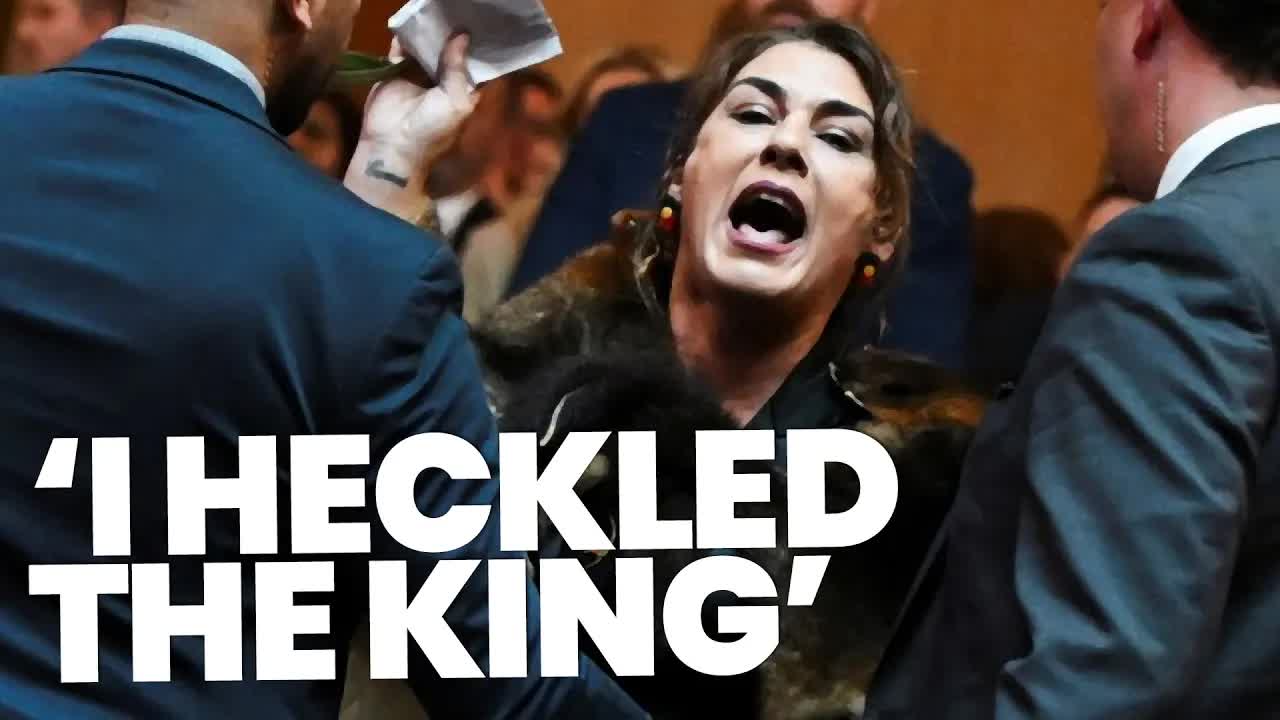In a recent visit to Australia, King Charles III faced unexpected backlash from Independent Senator Lydia Thorpe, who used the opportunity to voice her concerns regarding the treatment of Indigenous peoples.
Thorpe's actions have ignited a conversation about historical injustices and the ongoing struggles faced by First Nations communities in the country.
Thorpe did not shy away from expressing her discontent during the King's address at the Australian Parliament in Canberra.
She referred to her actions not as heckling but as “truth-telling.”
Her message was clear: the violent history of colonization that began over 200 years ago continues to impact Indigenous Australians today.
“Our people are still the poorest in our own land,” she stated, emphasizing the long-lasting effects of colonization.
The senator's remarks highlighted a grim reality—thousands of Indigenous children have been removed from their families, and the repercussions of these historical actions are still felt deeply within Indigenous communities.
Thorpe insisted that the King must acknowledge the genocide that has occurred and called for a treaty that would foster peace and reconciliation.
When questioned whether her grievances should be directed at the Australian government rather than the monarchy, Thorpe maintained that the royal family bears responsibility.
She pointed out that the wealth and power enjoyed by the monarchy have roots in the injustices inflicted upon Indigenous peoples, both in Australia and globally.
“Charlie needs to own up to what his family has done,” she asserted.
Critics of Thorpe's approach argue that her demands place an undue burden on the King, who serves as a constitutional monarch with limited powers.
However, Thorpe countered that the monarchy still holds influence in Australia, particularly when it comes to legislative matters.
“Why are we paying for his trip here?”
she asked, underscoring her frustration with the financial implications of the royal visit amidst pressing issues like the cost of living crisis.
Despite the backlash from some members of the public who deemed her interruption rude, Thorpe stood firm in her belief that her actions were necessary.
She allowed the King to complete his speech before presenting her views, asserting that her intention was to remind him of the sovereignty of Indigenous peoples.
“This is still our land,” she emphasized.
As the conversation unfolded, Thorpe was pressed on whether her demands for reparations and apologies were realistic.
She clarified that while she does not advocate for the expulsion of non-Indigenous Australians, there should be acknowledgment of the historical injustices and a return of Crown land to Indigenous communities.
“If you are the crown, then give us that crown land back,” she declared.
The senator's passionate stance reflects a broader sentiment among many Indigenous Australians who feel that their voices have been marginalized in discussions about their rights and recognition.
Thorpe's insistence on a respectful dialogue with the monarchy points to a desire for genuine engagement rather than mere token gestures.
In light of Thorpe's comments, the role of the monarchy in contemporary Australia is being scrutinized once again.
Many citizens are questioning the relevance of a constitutional monarchy in a nation grappling with issues of identity and historical accountability.
Thorpe's call for King Charles III to take a leadership role in addressing these matters resonates with those who seek meaningful change.
The senator's actions serve as a reminder that the path toward reconciliation is fraught with challenges, but it is a journey that must be undertaken.
As Australia navigates its complex history, the voices of Indigenous leaders like Lydia Thorpe will continue to shape the national discourse.
The conversation sparked by the King's visit reveals a critical need for acknowledgment, dialogue, and ultimately, action in addressing the injustices faced by First Nations peoples.































